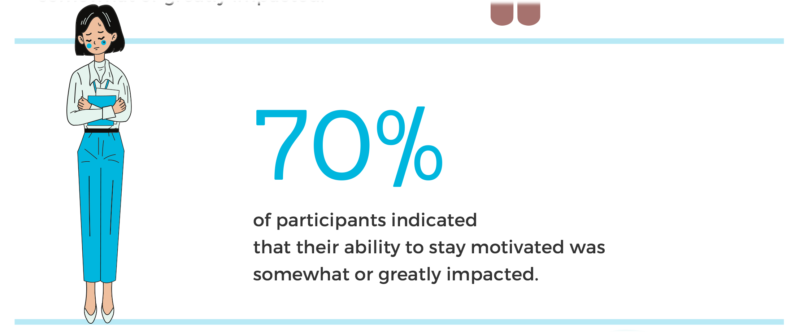As she sat on her couch, she escaped with the melody created by the strings of her guitar. Guilt, unworthiness, pressure and feeling alone. She could only cry so much.
“I’m trying my very best, and it didn’t work out,” said Eddna Stobschinski, a Lethbridge College student on Oct. 1, 2020, recalling a break up with her previous partner. “What did I do wrong?”
The effects of losing her job and financial security due to the COVID-19 pandemic hitting the city last March also increased helplessness and depression.
“How do I survive? How do I get food,” said Stobschinski. “I worried about just getting my groceries, just to be safe.”
“Nothing mattered,” said Stobschinski, recalling her moments of helplessness and vulnerability. “Because I was not seeing the end or the solutions to what was going on in that period of my life.”
Due to a kaleidoscope of personal difficulties, in addition to the financial instability and the limited social interaction brought forth by COVID-19, Stobschinski fell into depression, to the point of neglecting her health.
As a result, Stobschinski said she lost motivation with her academic studies due to isolation.
In March, a survey conducted by Lethbridge College to understand the impacts of COVID-19 and the shifting to an online learning environment noted students’ loss of motivation.

Deanna Gonnelly, manager of student success and advising at Lethbridge College, said Student Affairs created a plan to train staff from Academic Advising, Learning Support, the Wellness Centre and Career Development, in addition to increasing development resources for the faculty, to better support students including those experiencing a loss of motivation.
If successful, the plan will produce staff trained with motivational coaching to work one-on-one with willing students needing help to keep them motivated. A student may choose one or multiple sessions, depending on what they want.
“So, if a student tells us, you know what, I’m just not motivated because I realized that I don’t want to go into this career,” Gonnelly said, providing an example of supporting students. “They get to work with the career development coordinator who knows everything about careers, but also is now trained to support motivation.”
The college hopes the plan will go active soon.
Gonnelly also noted that the college is using its Early Alert system, the A+ initiative, to help identify students struggling with motivation. This will allow concerned faculty members to get struggling students the support resources they need, with the student success coordinator and program chair liaise to decide how to support a student properly.
Gonnelly also noted that if a student struggles with mental health, including motivation, a nurse with a trained mental health background from Wellness Services can help.
In addition to student support, the college is also making sure faculty are receiving the help they need.
“We have something called employee engagement; it’s like a committee that makes sure employees of Lethbridge College can stay motivated and engaged in their jobs,” said Gonnelly, explaining employee engagement puts together fun activities ranging from Zoom sessions to the employee newsletter, that includes things like easy recipes and home exercises to keep up employee motivation and engagement. “If you are happy and excited to be at work, you’re motivated to do better, to find different ways to teach your students and to find ways to support them as well.”
“And I’m excited that we’re offering some of these supports in a new way,” said Gonnelly, while also indicating her hope that students are more open and vocal about motivation and their mental health.
“But I’m just hoping that students are doing that self-check and making sure that they’re okay,” said Gonnelly, explaining that they could reach out to instructors if they are not. “And if that instructor doesn’t know, they know who on staff to get in touch with to get support for that student.”
Stobschinski said, remembering why she came to Canada to study in the first place is what kept her going.
“Remembering why I was here, why I’m here, what am I doing, why am I doing it, whats it’s gonna be for,” Stobschinski said. “I didn’t wanna give up. I had to show myself some strength.”
Stobschinski also added she got through the ordeal of her lack of motivation and depression through other people’s support, like the Lethbridge College Students’ Association, her closest friends, and her brother.
As the LCSA Vice President of Student Life, she advocates for students’ overall health, including their mental health and other concerns.
“Reach out, don’t keep things for yourself,” said Stobschinski, explaining that reaching out to others does not make one weaker or unconfident, but actually the opposite. “Be strong. This is not forever, and know why you’re doing this.”
The college’s Wellness Services continue to support both staff and students. More information can be found on the college’s website.



